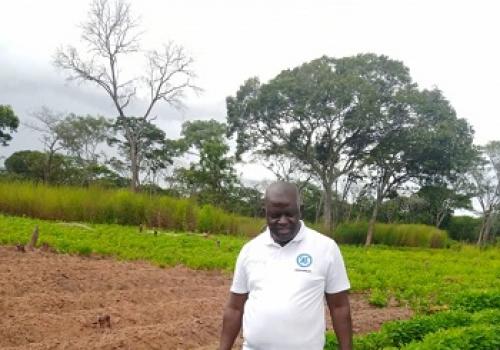Small-scale farmers and the private sector in the Southern African Development Community (SADC) are being capacitated on how to comply with sanitary and phytosanitary (SPS) measures in an effort to protect the health and welfare of human, plant, and animal life in the Region and beyond. This is being done under the Trade Facilitation Programme (TFP) which SADC is implementing with support from the European Union (EU) to enable the Region to further integrate in various areas of economic development. SPS measures are biosecurity actions which are applied to protect human, animal or plant life or health from risks arising from the entry, establishment and spread of plant pests and animal diseases as well as from risks arising from additives, toxins and contaminants in food and feed.
If poorly applied, SPS measures could result in the emergence of non-tariff barriers (NTBs) to trade. While SADC is committed to removing NTBs in order to improve trade between Member States, it also recognises that imported agricultural products which include plants, animals, and food products could carry or contain harmful pests or contaminants. For this reason, SADC Member States have agreed to follow safe trade facilitation set out by the recognised international standards development organisations.
By adopting and applying harmonised SPS measures throughout the Region, Member States could remain confident that agricultural products which are imported from other nations within the Region comply with the relevant SPS requirements, thus easing the concern about any harmful effects on human, plants and animals, and businesses. This also reduces the chances of introducing SPS related NTBs to trade as measures are developed based on science and implemented in a transparent manner.
The work of the Region's conformity assessment bodies is to ensure compliance with relevant standards and SPS principles. One of the failures in trade among Member States which contributes to low intra-SADC trade is the non-recognition of conformity assessment results between Member States. This stems from the lack of trust in each other’s national conformity assessment regimes, hence the need for a common framework for the mutual recognition of same.
The development of the framework for mutual recognition of the certificates of compliance issued by the competent national authorities across Member States was completed and the draft framework is still awaiting validation and adoption by the SADC Member States. Conformity assessment is a collection of procedures that demonstrate that a product, service, or system complies with a set of requirements. Subjecting a product to the conformity assessment process offers several advantages, including giving customers and shareholders further assurance that the product is suitable for purpose and safe for both the consumer and the environment. The TFP programme has gone even further in this regard, training laboratories in testing and calibration; inspection bodies in Member States were also trained on the applicable conformity assessment standards and regulators in the Region were trained on how to do regulatory impact assessments. .
This activity was done as part of strengthening the ability of regional regulators to identify and approximate regional technical regulations within the SADC TRLC framework. While technical regulations are set in the best interest of achieving the national legitimate objectives, it is important to ensure that the trade terrain remains even and manoeuvrable. The TFP initiative has sponsored online surveys on the identification of standards and conformity assessment needs along regional value chains in order to define priorities for standard harmonisation and technical regulation convergence. The value chains targeted included the categories of oilseeds, grains and meat. The products targeted in these categories were soya, rice and poultry. The standards, SPS measures and related conformity assessment needs that were identified in this survey will be prioritised for harmonisation among the standards development bodies of the SADC Member States as they participate in the regional standards development framework presented by the SADC Cooperation Structure on Standards harmonisation (SADCSTAN).
For a Member State to be a reliable trading partner in the Region, it must be transparent with its non-tariff measures and in this regard, most SADC Member States have trade information portals. SADC has developed a regional Technical Barriers to Trade (TBT) and SPS Non-Tariff Measures (NTMs) Database which contains information on more than half of her Member States, and continues to be populated. This work was linked to the development of an NTMs database at the SADC-COMESA-EAC Tripartite level to avoid duplication of efforts while benefitting from the experience gained at that level. In order to create a gateway for the TBT and SPS information flow between the SADC trading partners, a system for joint information sharing between importers and exporters from the different regions to ensure that both parties receive and disseminate information was developed.

